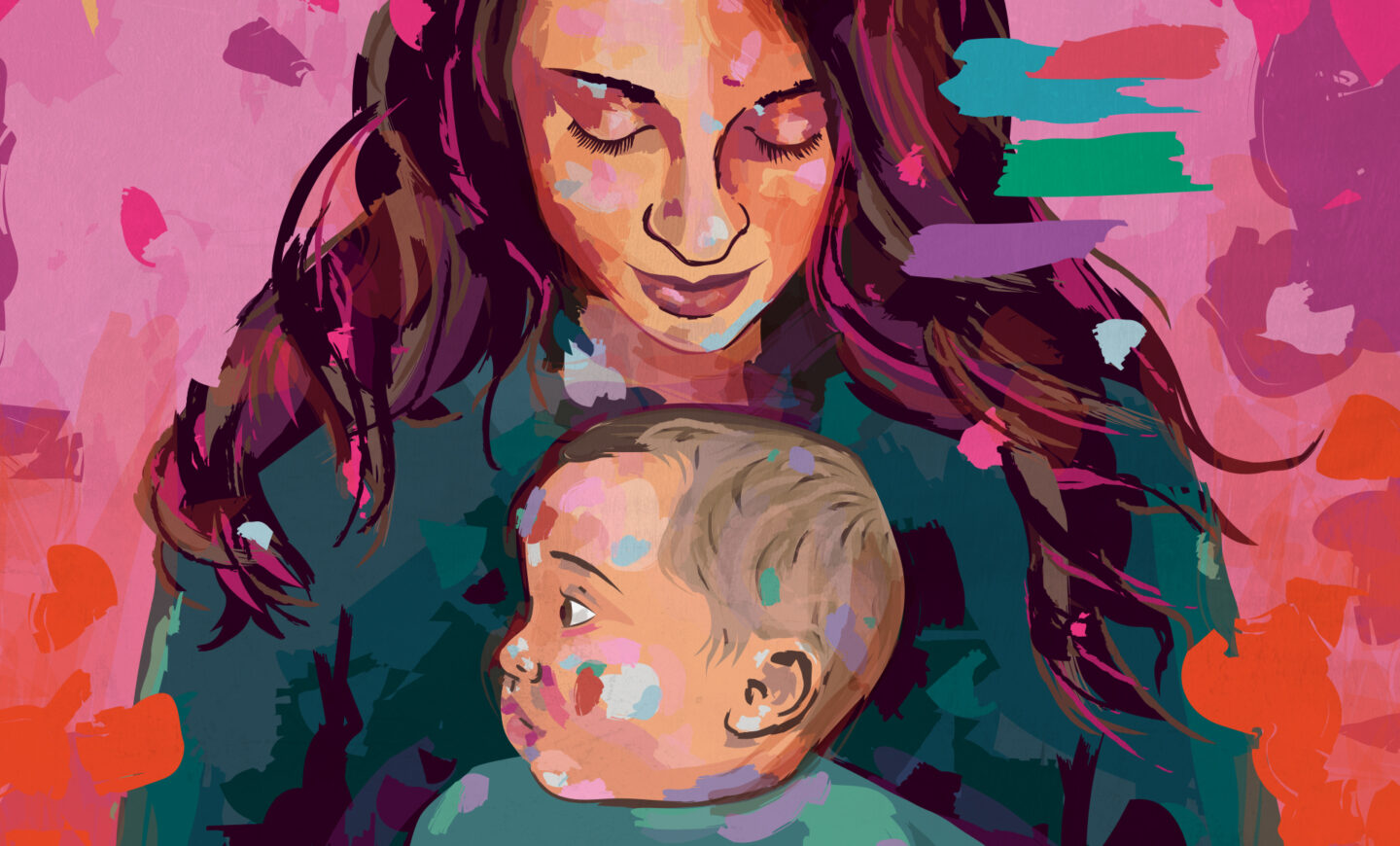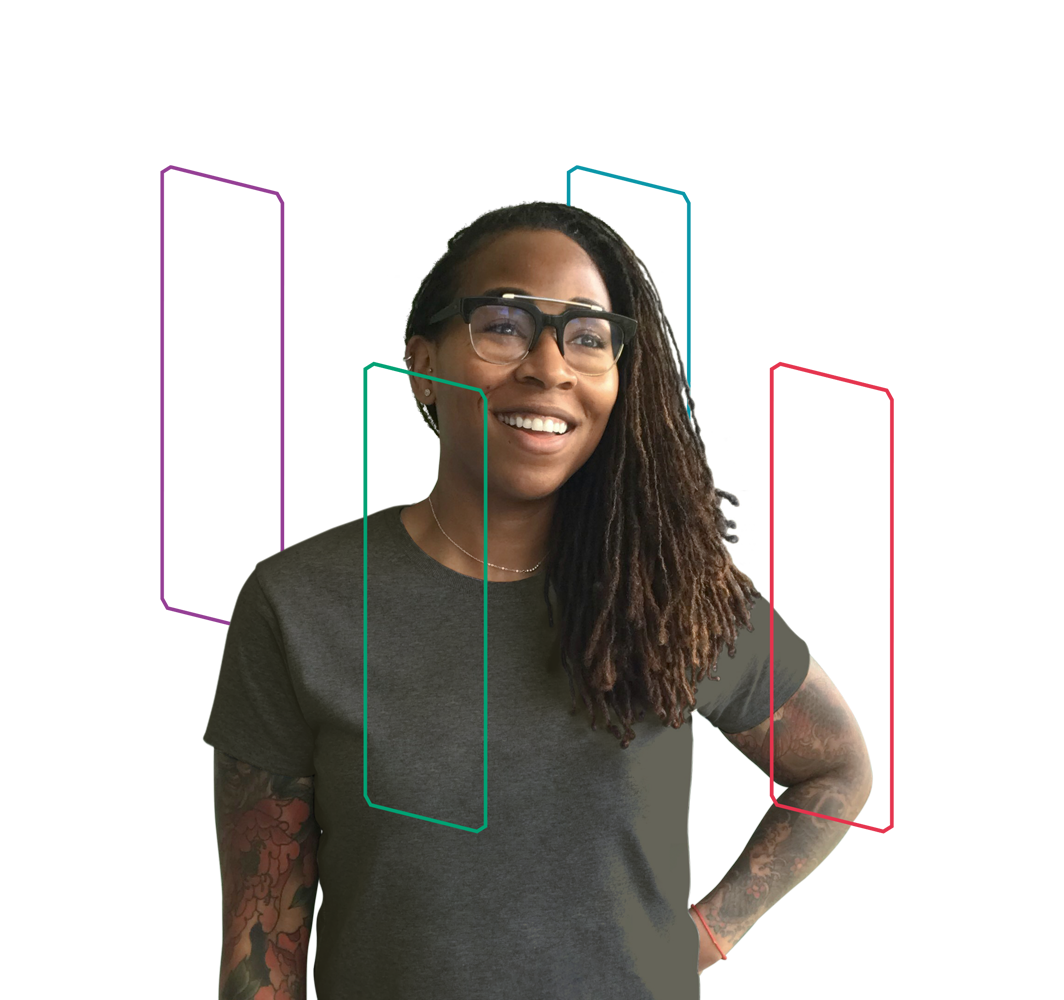Our Spotlight series highlights a new nurse from the SHIFT audience each month. We ask the same set of questions each time, but of course, we get all kinds of answers. The individual stories and surprise twists in these conversations make us laugh, cry and feel proud. Over time, we hope to discover both what makes each of you unique and understand what ties all of us together as nurses.
Alyssa F. is an RN with more than seven years’ experience in the field. From D.C. to Boston to Portland, Maine, every job she’s had in nursing has been in the NICU. Alyssa is also mom to a tenacious toddler, which made it all the more interesting to hear how her experiences in the profession have shaped her personal vision of nursing and her wishes for the future.
Why did you decide to go into nursing?
I was an English major and was getting my master’s in publishing when I decided I wasn’t in the right career track. I started working as a full-time nanny while I was searching for my next step, and that’s actually how I found nursing. The baby I was caring for got sick with his first fever, and after I took care of him, gave him medicine and put him to bed, I had this realization that I loved the feeling of taking care of another human being—but doing it as a nanny was on such a small scale. His mom was a nursing director at a hospital in Boston. I wound up having a conversation with her about my future, and she encouraged me to start exploring nursing. I started by volunteering as a cuddler in a NICU in Boston and just fell in love with it immediately. I knew that being a NICU nurse was one hundred percent what I wanted to do. I stayed with that family I was nannying for throughout nursing school, and the mom really helped me get through it—she was my mentor. She still is.
Tell us about a time when it was really hard to be a nurse or a time that made you question being a nurse.
After I had my son was the hardest time to be a nurse, and I think this was made worse being in the NICU, but not for the reasons you’d expect. I expected I would be looking at sick babies differently, which I certainly did and still do. But for me, it was actually going to work to take care of these babies when my baby was at home that was exponentially harder than I had imagined. I did wind up cutting back my hours, and eventually I took a break from nursing. Once my son wasn’t an infant anymore, it didn’t feel the same, and I felt much better going back. But in those early days of his life, I had never been less sure of my career choice. That was especially hard, because even though there were lots of nurses around me who were moms, I didn’t see them having the same struggle—at least not outwardly.
Who inspires you?
Going back to how I got into nursing, I would say it’s the woman I nannied for who got me into the profession. As a mom, she really inspires me because she works her tail off and she is never done. She got a PhD with two little kiddos at home! And since then, she has continued to do truly remarkable things, any one of which would be the highlight of someone else’s career, but she keeps going. And through it all, you can just always see her taking care of people—even though she’s not at the bedside anymore. She’s really the picture of what modern nurses can be like. They can be major leaders. She is a brilliant person; nurses are brilliant people. We’re not “task monkeys,” which is unfortunately sometimes how we are looked at.
Describe your SHIFT BFF. Why are they your best friend on the job?
I always gravitate toward down-to-earth, “no BS” nurses who would do anything for their patients—even if it means literally standing outside the door of a sleeping NICU baby’s room, threatening anyone who dares to try to come in! Basically, my BFFs are guard dogs for our patients. That kind of person who really sticks together with other nurses—because it can be a hard role to protect these babies, and you can be seen as obnoxious—those are my besties.
Tell us something about your specialty that other nurses may not know.
One of the things that’s hard about the NICU is that your patients can’t tell you what’s wrong. I mean, they can, but you have to know how to decode their secret language. You’re seeing them more than anybody else and trying to convey what they can’t convey to all the necessary people — for example, a sneeze indicates stress in a premature baby. This is probably similar in other specialties of nursing where patients can’t communicate, but trying to advocate for a baby to get morphine, for example, is a unique experience. Even people who work in the NICU might ask, “What are you thinking? That baby isn’t even crying. They look fine.” But when a premature baby is quiet, that’s their way of telling you something is really wrong. That can be their way of telling you they’re in pain.
Describe your community’s health. What is your hope for your community’s health in the future?
I’m hoping that as a result of the pandemic and, basically, this experience of having your health thrown in your face every day, people, especially people with children, will have more of a desire to take charge of their own health. We’re not invincible, but there is so much that we can do to look after ourselves and our children that many of us aren’t doing.
What is your vision for the future of nursing?
I’ve worked in three hospitals now—one in DC, one in Boston, and one in Portland—and the role of nurses and the way we are treated has differed at all three. My hope for the future of nursing is that we’re respected across the board as an integral member of the medical team and that we’re seen that way whether you’re working in Boston or rural Alabama or California. We do the same work, no matter where we are in the country, but institution to institution, nurses are treated so differently. It shouldn’t be such a culture shock to go from one place to another when you’re doing the same job. It’s one thing to get adjusted to a new place, but to get adjusted to a completely different attitude is really hard. And I think it will set some nurses up for failure if the first place they work is one where they are not respected.
How can nurses be better to each other?
Nurses “eating their young,” the bullying—and I went through that—it has to stop. It’s so outdated and it’s so wrong. It doesn’t benefit anybody. If you’re a nurse who has 10 years of experience and somebody who’s fresh out of college is on your unit, you should be going out of your way to take them under your wing, not to make their life harder. Because that doesn’t make them a better nurse! If we want to encourage strong and assertive nurses who are going to feel confident enough to do this job—and it’s a job that you can’t do if someone is always trying to convince you that you’re incapable—then we have to help them from the beginning, and not by beating it out of them.
Describe one of your best shifts ever.
I was a primary nurse taking care of a set of twins who were born two days before my birthday. There was just something about this family that I felt connected to. The twins were born pretty early—less than 30 weeks gestation—and were attached to a lot of equipment, so their mom had never held both of them at the same time. One day, when they were both stable enough, I decided I was going to get them up with mom together. We really had to maneuver the room so that we could get both babies over to her without pulling or stretching any wires or tubes too far. We had the mom in the middle of the room, and there were wires coming across both sides tethering her babies to the monitors and equipment, but it didn’t matter how unnatural the process was because the result was that they were all together. These teeny tiny babies were both tucked inside her shirt looking at each other, and one had its little hand on the mom’s chest and the other one put her hand on top of that hand. The mom was giddy with excitement and both the babies were totally stable while lying on her. Watching the three of them, the way they had been before they were born too early, it was just … amazing. I took a photo and the mom gave me a copy. I still look at it around my birthday every year and I just remember that it was such a good day.
—
This interview is the first in our new monthly series, SHIFT Talker Spotlight. If you’re interested in sharing your story, please reach out on our website or email us at hello@shiftnursing.com.


